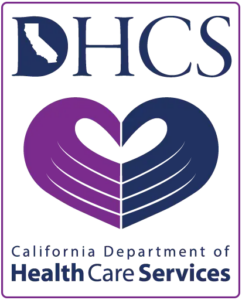Alcohol is one of the most commonly consumed substances worldwide, yet its effects on the brain and body can be confusing. Some people associate drinking with increased energy and confidence, while others experience sedation and impaired motor skills. So, is alcohol a stimulant or a depressant? The answer isn’t straightforward.
While alcohol can initially produce stimulating effects, it ultimately functions as a depressant, slowing down the central nervous system. Understanding alcohol’s impact can help individuals recognize its risks, especially when use turns into dependency.
At Surf City Detox, in Huntington Beach, California, we provide expert care for those struggling with alcohol addiction, offering a path to recovery in a safe, supportive environment. Choosing detox in Huntington Beach gives individuals access to compassionate care and medical support during this crucial first step toward sobriety.
Is Alcohol a Stimulant or Depressant?
Alcohol is often mistaken for a stimulant because of the initial feelings of euphoria, energy, and confidence it can create. However, these effects are temporary and are followed by sedation and slowed bodily functions. True stimulants, like caffeine or cocaine, increase heart rate, alertness, and overall brain activity, while alcohol ultimately does the opposite. The side effects of alcohol can present symptoms that can feel like both a stimulant and a depressant, which can be confusing, but here’s why.
Alcohol’s effects follow a biphasic pattern, meaning it has two distinct phases. During the initial phase, low doses of alcohol cause increased dopamine release, leading to temporary excitement, talkativeness, and heightened mood. However, as consumption continues, alcohol’s depressant properties take over, causing sluggishness, poor coordination, and cognitive impairment. The shift from stimulant-like effects to depressant effects is why some people feel energized when they start drinking but experience fatigue and reduced motor function later.

Stimulants vs Depressants
Stimulants and depressants have opposite effects on the central nervous system. Stimulants, such as amphetamines, nicotine, and caffeine, increase heart rate, enhance focus, and boost energy levels by stimulating neurotransmitter activity. These substances can cause heightened alertness and temporary improvements in mood and performance.
In contrast, depressants like alcohol, benzodiazepines, and opioids slow down brain function, leading to relaxation and sedation. While depressants can reduce anxiety and promote sleep, they also impair coordination, lower blood pressure, and, in excessive amounts, cause respiratory depression and overdose.
At low doses, alcohol can produce stimulant-like effects, such as increased talkativeness, confidence, and a sense of well-being. These effects occur because alcohol initially boosts dopamine levels, the neurotransmitter associated with pleasure and reward. Many people enjoy this phase of drinking because it helps reduce social anxiety and enhances mood.
However, these effects are short-lived. As blood alcohol concentration (BAC) rises, alcohol’s depressant qualities become more dominant. The initial excitement and energy gradually give way to drowsiness, slowed reactions, and impaired cognitive function.
As alcohol consumption increases, it acts more as a depressant. It slows down brain activity, impairs motor skills, and reduces inhibitions. This is why high doses of alcohol can lead to slurred speech, poor decision-making, and difficulty walking.
Alcohol also affects the brain’s ability to regulate emotions, which can lead to mood swings, aggression, or feelings of depression. In extreme cases, excessive alcohol consumption can cause unconsciousness, coma, or fatal respiratory depression.
Despite its initial stimulating effects, alcohol is classified as a depressant. It works by enhancing the activity of GABA, an inhibitory neurotransmitter, which slows down brain function and reduces nervous system activity. While small amounts of alcohol may make a person feel more sociable or energetic, these effects fade as blood alcohol levels rise. Instead of increasing long-term alertness or energy, alcohol leads to drowsiness, slowed reflexes, and impaired cognitive function.
Alcohol can significantly depress the central nervous system, leading to various impairments such as slurred speech, unsteady movements, altered perceptions, and a diminished ability to respond swiftly. It hampers rational thinking, reduces inhibitions, and distorts judgment. Excessive and rapid consumption of alcohol can depress the central nervous system to such an extent that it may result in respiratory failure, coma, or even death.
While alcohol is clinically classified as a depressant, it can produce both stimulating and sedating effects. The specific effects experienced by an individual depend on the quantity of alcohol consumed and their reaction to it. Many individuals initially consume alcohol for its stimulating effects, seeking to feel more relaxed and to diminish social inhibitions. However, as consumption increases, the sedative effects become more pronounced, leading to cognitive impairment. Some individuals may primarily seek alcohol for its calming effects, particularly for anxiety relief.
Research indicates that most individuals initially drink alcohol to enjoy its stimulating and positive effects; however, those who develop dependence or addiction may shift their motivation to drinking primarily for the anxiety-reducing sedative effects. Consuming alcohol slowly is more likely to foster a desire for sedative effects, while rapid consumption tends to enhance stimulating effects.
Certain researchers propose that individuals who do not experience strong sedative effects from alcohol may be at an increased risk of developing an alcohol use disorder. They may consume larger quantities to achieve the desired effects, thereby heightening their likelihood of encountering negative consequences. Alcohol overdose, or alcohol poisoning, can lead to even more severe depressant effects, including an inability to feel pain, loss of consciousness, slow and irregular breathing, cold and clammy skin, and potentially death. The severity of these reactions is also contingent upon the amount consumed.
How Does Alcohol Affect the Brain and Body?
Alcohol exerts a multifaceted influence on the brain. Drinking has complex effects on both the brain and body. When consumed, it interacts with neurotransmitters like gamma-aminobutyric acid (GABA), a neurotransmitter that induces sensations of tranquility and sedation, while also depressing the central nervous system. It alters mood, perception, and cognitive function. Initially, alcohol may create feelings of relaxation and lowered inhibitions, but as consumption increases, coordination, speech, and judgment become impaired. It can also lead to reduced respiratory and heart rates.
Furthermore, alcohol inhibits the action of glutamate, contributing to memory impairment and other cognitive dysfunctions. In addition to its effects on GABA and glutamate, alcohol stimulates the release of dopamine, the neurotransmitter associated with pleasure and reward. This mechanism often drives individuals to consume more alcohol in pursuit of heightened feelings of euphoria.
Nevertheless, as alcohol intake increases, the depressant effects become more pronounced. Continued consumption leads to further impairment of judgment, vision, and alertness, dulling the senses, disrupting concentration, and slowing reaction times.
Physically, alcohol affects multiple organs, particularly the liver, which is responsible for breaking down alcohol. Chronic use can lead to liver damage, digestive issues, cardiovascular problems, and an increased risk of certain cancers. The central nervous system also slows down, leading to drowsiness, slowed reaction times, and, in high doses, dangerous levels of sedation.
While many people drink socially, long-term or excessive alcohol use can contribute to addiction, mental health disorders, and significant physiological harm.
Recognizing When Alcohol’s Depressant Effects Go Too Far
For some individuals, alcohol’s depressant effects become overwhelming, leading to dependence and addiction. Alcohol use disorder (AUD) is a chronic condition characterized by compulsive drinking, loss of control over alcohol intake, and negative emotional and physical consequences.
Signs of AUD include drinking despite negative consequences, unsuccessful attempts to cut down, withdrawal symptoms, and prioritizing alcohol over responsibilities. If left untreated, AUD can severely impact a person’s mental and physical health, relationships, and overall quality of life. If you or a loved one struggles with alcohol abuse, call Surf City Detox for alcohol addiction treatment in Huntington Beach, California.

Treatment for Alcohol Addiction
At Surf City Detox, we offer comprehensive treatment for alcohol addiction, helping individuals safely detox and recover in a structured, supportive environment. Our residential rehab program provides medical supervision, individual and group therapy, and holistic approaches to healing. Detoxing from alcohol can be dangerous without medical support, as withdrawal symptoms can include tremors, seizures, and severe anxiety.
Alcohol detox is the first step in treatment. At Surf City Detox, our medically supervised detox program ensures a safe withdrawal process, managing symptoms and reducing discomfort. Our team of professionals provides 24/7 care to prevent complications and support clients through this critical phase of recovery.
Our residential treatment program offers a structured, immersive environment where individuals can focus entirely on their recovery. With medical supervision, therapy sessions, and holistic treatments such as yoga and mindfulness, we help clients address the underlying causes of their addiction and develop long-term coping strategies.
Many individuals struggling with alcohol addiction also have co-occurring mental health disorders such as depression or anxiety. Our dual diagnosis program treats both conditions simultaneously, ensuring a comprehensive approach to recovery. We provide psychiatric care, therapy, and medication management to support lasting healing.
Recovery does not end after detox or residential treatment. Our aftercare program helps individuals transition back into daily life with continued support. We offer relapse prevention strategies, alumni programs, and outpatient therapy to help clients maintain sobriety and build a fulfilling, alcohol-free life.

Can Alcohol Cause Mental Illness?
Yes, alcohol abuse can lead to mental illness and worsen existing mental health conditions. One of the most common links is between alcohol and depression. While some people drink to temporarily escape feelings of sadness or loneliness, alcohol is a depressant that can ultimately make these emotions worse. Over time, heavy drinking can alter brain chemistry, depleting neurotransmitters responsible for mood regulation, such as serotonin and dopamine. This can lead to persistent depressive symptoms, making it difficult for individuals to find joy or motivation. Additionally, the cycle of alcohol dependence and withdrawal can create emotional instability, increasing the risk of major depressive disorder.
Alcohol abuse is also closely linked to anxiety disorders. While drinking might provide short-term relief from anxious thoughts, long-term alcohol use can intensify anxiety symptoms. Chronic alcohol use disrupts the nervous system, leading to heightened stress responses and making it harder for the body to cope with everyday stressors.
Additionally, alcohol-induced sleep disturbances can contribute to increased anxiety and panic attacks. For those with pre-existing mental health disorders such as bipolar disorder, PTSD, or schizophrenia, alcohol abuse can exacerbate symptoms, reduce the effectiveness of medications, and increase the risk of self-harm or suicidal thoughts. Seeking professional treatment is essential for addressing both alcohol use disorder and co-occurring mental health conditions.
Seek Help at Our Alcohol Rehab Center
If you or a loved one is struggling with alcohol addiction, Surf City Detox is here to help. Our residential rehab center in Huntington Beach, California, provides expert care, medical support, and evidence-based treatments to help individuals regain control of their lives.
Alcohol addiction doesn’t have to define your future. With professional help, recovery is possible. Contact Surf City Detox today to start your journey toward a healthier, sober life.

Dr. Eric Chaghouri is a 2007 graduate from the University of California, Los Angeles, where he earned his B. A. in Biology with Summa Cum Laude honors. While at UCLA, he helped the men’s varsity volleyball team earn a National Championship in 2006. He was named the UCLA Scholar-Athlete of the Year in 2007.
He earned his medical degree from the Keck School of Medicine in 2011. He completed his internship training in 2008 at Cedars-Sinai Medical Center and the remaining three years of residency in general adult psychiatry at the Los Angeles County and University of Southern California Medical Center. He served as the Chief Resident in psychiatric emergency services during his fourth year of residency. He also served as Resident Clinical Instructor and Volunteer Faculty in the Department of Psychiatry at the Keck School of Medicine.
After completing residency, Dr. Chaghouri accepted a fellowship position in forensic psychiatry at the prestigious USC Institute of Psychiatry and Law. His scholarly activities included publishing in Legal Digest and presenting research findings at the Keck School of Medicine annual conference.
Since completing his forensic psychiatry fellowship, he has established a successful and thriving practice in Southern California, focusing on treatment of co-occurring psychiatric and addictive disorders. He has developed a strong clinical team of practitioners who share similar goals and philosophies regarding psychiatric treatment, including providing cutting-edge interventional treatments for psychiatric conditions. He works in an array of capacities with attorneys, courts, and other parties in actual or potential litigation. He also has extensive experience consulting and providing opinions on psychiatric issues for major television networks. Dr. Chaghouri’s interests include addiction medicine, substance use disorders, forensic psychiatry, medical ethics, psychological autopsy, gender wellness, and evidence-based treatment of psychiatric conditions.



